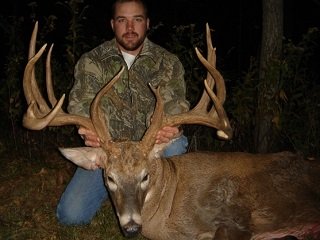 All hunters are aware of the two standard hunting record books, the Boone & Crockett Club and the Pope & Young Club, but who started them and why were they started? The answers to those questions are as unique as the people who created them, and both ‘clubs’ are a major part of wildlife conservation history.
All hunters are aware of the two standard hunting record books, the Boone & Crockett Club and the Pope & Young Club, but who started them and why were they started? The answers to those questions are as unique as the people who created them, and both ‘clubs’ are a major part of wildlife conservation history.
The Boone & Crockett Club is the grandfather of all conservation record book organizations, and it is the gold standard that all other record keeping entities were spawned from. According to its own history, it is the oldest organization in America centered on wildlife conservation. It was founded in 1887 by Theodore Roosevelt and George Bird Grinnell.
Everyone knows that Roosevelt was the pioneer of conservation as he helped establish several national parks, wildlife laws, federal wildlife agencies and he helped establish modern day wildlife management. During the late 1800’s, there were no mega-farms that we have today so wild meat was the only meat available in most markets. The demand for meat grew with our population and the supply was becoming over-hunted and something needed to be done. Roosevelt’s affinity for the outdoors and wild animals was legendary and so are his related accomplishments.
The Boone & Crockett record book claims the keeping of records was, “The first big game scoring and data collection system to objectively measure and evaluate species and population health and habitat quality to improve state and federal wildlife polices and management.”
The Pope & Young Club is the most well-known bowhunting conservation organization. They state on their website that the club was, “Founded in 1961 as a nonprofit scientific organization, the Club is patterned after the prestigious Boone and Crockett Club.”
The club’s namesakes are Dr. Saxton Pope and Arthur Young. Both gentlemen were partly responsible for bowhunting becoming an accepted and adequate method of modern hunting for big game animals. Up until the 1950’s, archery was considered an out of date endeavor and an archaic method of killing animals.
Young and Pope changed that sentiment in the early part of the century by getting their adventures in bowhunting into newspapers, magazines and as part of radio broadcasts. Not only did they popularize bowhunting, but they also promoted ‘fair chase’ hunting and forever changed hunting vernacular. Fair chase was an ethical standard that encouraged hunters not to take advantage of animals in any situation where they weren’t free to escape of flee. Today, fair chase is a well-known and highly used expression that is common speak among all hunters.
These organizations are both growing and thriving today.








